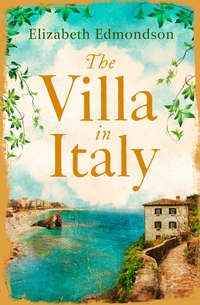
Полная версия
The Frozen Lake: A gripping novel of family and wartime secrets
‘Can’t they send a messenger? Oh, very well.’ Saul waited for the door to shut completely, and then bounded to his desk and took up the newspaper. Ignoring trouble in Turkey – dammit, there was always trouble in Turkey – alarming news in from the Far East and the tense situation in Spain, Charles, impudent young ass, had folded the newspaper back to an aerial photograph of snow-covered fells towering over that oh-so-familiar sheet of water, gleaming in icy splendour.
Saul read the caption and the piece that accompanied the photograph. Then he threw the paper down on the desk and went back to the window, his arms folded. He had the odd sensation of being two men, one clad in the black jacket and grey striped trousers of the official world, pale faced, not a sleek hair out of place; the other existing three hundred miles away, wearing tweeds, brown boots and skates on his feet, hair ruffled by the wind, cheeks glowing from the cold.
He reached out for the telephone on his desk and picked up the receiver. ‘Get me Mrs Richardson, please.’
A minute later, the telephone bell shrilled out. ‘Jane? I’m cancelling the Christmas visit to the constituency. We’ll go north. Ring Mama and tell her we’re coming. After the weekend, I think. We’ll drive. I leave all the arrangements to you.’
He replaced the receiver, strode across the room, unhooked his overcoat from the coatstand, put it on, wrapped his sombre scarf into the neck of the coat and, bowler hat in hand, left the room. He travelled swiftly through the outer office. ‘I’ll be back at about, oh, say four,’ he said in passing to the bun-faced woman lodged behind an enormous typewriter. ‘Tell Charles to deal with those papers, no, I can’t be contacted.’
Then he was out in the corridor and walking quickly towards the lifts. He didn’t want to leave London without seeing Mavis.
THREE
London, Knightsbridge
The phone rang and rang. Jane Richardson could see, as clearly as though she were there, the telephones sounding their shrill alerts: in the Great Hall, in Rokeby’s pantry, in Henry’s study, in Caroline’s dressing room.
Finally, the phone was picked up in mid-ring, and Jane heard a harsh, French-accented voice say, ‘Hello?’
‘Who is this?’ Jane said, her own voice tart now.
‘Lipp.’
‘Lipp. I might have known. Why are you answering the phone?’
‘There’s no one else to answer it. Is that Mrs Saul?’
How she hated to be called Mrs Saul. ‘Lipp, after all these years you surely know that when you answer the telephone, if you must do so, please respond with the number. Don’t just say, Hello. It’s most unhelpful. One could have been connected to anyone, and I don’t see why you have to answer the telephone. Where is Rokeby? You must know.’ Of course Lipp knew, she always knew where everyone was.
‘Rokeby’s helping Sir Henry with the generator.’
‘Oh, really, it’s too bad.’ Why a man of her father-in-law’s years and dignity, who moreover kept a full staff, felt he had to attend to the generator was beyond her understanding. ‘Go and tell Lady Richardson I would like to speak to her, please.’
There was a clunk as Lipp laid the receiver down; far away in London, Jane could hear the click-clack of Lipp’s heels receding into the distance as her mother-in-law’s maid went upstairs.
Lipp must have left the receiver too close to the edge of the table, for there was a rustling sound and a thump, then more bangs. The receiver dangling on its cord, no doubt, swinging to and fro, and banging against the table leg as it did so. There was a harsh crackle down the line, further bumps and bangs, and then she heard Caroline’s voice.
‘Jane?’
‘Shall I put this one down now, my lady?’ cut in Lipp’s voice.
‘Yes,’ said Jane and Caroline together. Crash.
‘That terrible woman,’ Jane said, under her breath.
‘What did you say? Nothing? I distinctly heard you speak. Never mind. How is Saul?’
‘Perfectly well. He wants us to come to Wyncrag for Christmas.’
Caroline’s crystalline tones came down the line, as clear as though she were standing beside her; Caroline’s voice was like that on the telephone. ‘I was expecting you. When are you coming?’
‘Saul hasn’t decided. He intends to drive down, so he’ll be anxious to get away from London in good time before the Christmas exodus starts. One day next week, I’ll let you know. Perdita breaks up this week, I suppose. Who else will be there?’
‘Edwin wants to persuade Alix to come.’
‘Alix! Good heavens, after all this time? Have you heard from her?’
‘I’ve heard of her, which is quite enough. It seems that she’s fallen into unsuitable company.’
‘Alix is old enough to decide what company is or isn’t suitable for her, Caroline. She’s no longer a child. If you set into her the moment she steps into Wyncrag, you may find she turns straight around and leaves. I would.’
‘I hardly think your opinion on this subject is of any importance.’
Nor was her opinion on anything else, not as far as Caroline was concerned.
‘Besides, I have no expectation of her coming.’
The sound of the receiver being put down, a pause, and then another voice quacked at her. ‘You have upset Madame.’
Lipp again.
‘Madame’s upset me.’
‘She is no longer young, you should have consideration.’
‘Thank you, Lipp. Is there anything else you want to say?’
‘Madame wishes you to go to Bond Street and collect some linen she has ordered. You may bring it up with you in the car.’
‘Goodbye,’ Jane said firmly. She replaced the receiver with deliberate care, and then sat absolutely still, hands folded in her lap. Not a hair was out of place; from her elegant grey shoes through her pale grey skirt and cashmere grey twinset, worn with a restrained diamond brooch, to her faultless face and sleek jaw-length hair, she was a picture of perfection.
Outside, all was calm. Within, she seethed. She longed to hurl the telephone across the room, to bang her hands on the table, to yell and stamp. Wyncrag. How she hated Wyncrag. Almost as much as she hated the Surrey house with its ridiculous half-timbering and pompous attempt to look like a real country house. Almost as much as she hated this flat, with its spindly French furniture, its valuable rugs and pictures and mirrors. Perfect. Sterile. Appropriate. Just as she was the perfect, most appropriate wife imaginable for an up-and-coming politician.
She flipped open the cigarette box and jammed a cigarette between her lips. She lit it with the heavy silver table lighter, shaped like a tureen, loathsome thing, and flipped open a copy of Country Life, jerking through the pages filled with photographs of desirable properties for sale.
Her eyes fell on a small, black and white picture. Impey Manor, she read. Fifteenth-century manor house with many original features, in need of modernisation and improvements. Gardens, garaging, stabling, maze, small lake, paddocks, nine acres in all.
In your dreams, she thought. In those dreams where she lived in shabby comfort in the country, in a mellow old house, full of twisting passages and unexpected stairs. Dogs. Ponies. Doves fluttering around a dovecote. Winter mud and ice; sudden spring; the deep smells of summer, newly cut grass, hay, roses; autumn trees in a blaze of colour. Children in gumboots swishing through the fallen leaves.
That was the knife twisting in the wound. To linger in such dreams was unendurable. She dragged herself back into the actual world of here and now. Forget manor houses and the country and roses, she told herself.
Children.
The children Saul wouldn’t let her have. Or, rather, the children Saul’s mother didn’t want her to have, since she and her husband were cousins, and the dangers of inbreeding, as Caroline so charmingly put it, not worth risking.
She slammed the magazine shut, got up, drawing ferociously on her cigarette, making mental lists. Saul first: his man would see to his clothes. His skates, were they here or at Wyncrag? Binoculars. Books, presents, she would have to finish her shopping in a hurry. Her mind skittered from thing to thing. The evening dress that needed altering. Her engagement diary, day after day over Christmas and New Year filled with cocktails and dinners and dances; every one to be cancelled, apologies to be made, ruffled feathers smoothed, every word watched. Any carelessness could mean a vote lost.
Time spent in Saul’s constituency was always time spent walking on eggshells. Dammit, she’d have to lie and deceive. ‘Sir Henry, Mr Richardson’s father, not too well.’ How ridiculous, his father was always as fit as a flea, with the energy of three ordinary men. Saul’s constituents weren’t to know that, thank God he sat for a southern seat.
His mother then? Lady Richardson? They’d picture a fragile beauty, walking with a stick, silvery hair, a faded rose. Let them picture, provided they never set eyes on the short, powerful woman with her hooded, hawk’s eyes and hair still showing the traces of the rich chestnut colour of her youth. What would bring Saul more sympathy, rushing to his mother’s or his father’s side?
How tired she was of the whole wretched business; to think how pleased she’d felt when he’d been elected, when his delight in it had been so open, more like the thrill of a little boy given just the present he wanted than a grown man embarking on a political career.
She stubbed out her cigarette with restrained violence, then rang for her maid.
FOUR
SS Gloriana, at sea, the Bay of Biscay
The waves were long and deep, and dark beneath the foamy carpet of spray. Hal Grindley’s mackintosh was bunched tightly around him, its collar up, its deep pockets a refuge for his icy hands. He wore no hat; the wind would have whipped it off in a second.
He was standing at the same place at the rail on the third deck where he had stood every night of the voyage since the first day out from Bombay. From there he had watched an enormous moon rise over a gleaming dark sea, and had seen the southern stars give way to the more familiar northern constellations shining with pinpoint brilliance in icy December skies. There, evening after evening, he had felt in its full intensity the strange suspension of reality belonging to a sea voyage. There he had thought about Margo, night after night, trying to order his feelings, to lessen the hurt, to regain a sense of proportion.
She had been with him in his mind all those months since his departure from San Francisco; she was beside him in his dreams as he crisscrossed Australia, as he tossed and turned in the sweltering heat of summer, as he sat outside on verandahs in India, listening to the eerie night sounds of the east. Finally, as the seas grew more grey and rough, he had reached the state of indifference he had longed for. A door slammed behind him, shutting away all the years he had spent with her, reducing her betrayal to no more than the hissing breaking of a wave, spray tossed into the air and vanishing in the mass of water.
Tonight, as the SS Gloriana forged her way through the heaving seas of the Bay of Biscay, there were no stars to be seen.
A door opened further along the deck, and he caught the vanishing sounds of chimes summoning passengers to dinner. With a last look out into the blackness of the night, he went back in to warmth and light and the steady hum of the ship’s engines. He made his way to his cabin to shed his coat; he was already dressed for dinner, although he had disarranged his black tie by fastening the collar of his mackintosh close about his neck. He twitched the tie back into place and set off once more to make his way along the swaying corridor, not at all bothered by the plunging motion of the vessel.
The vast dining room was sparsely filled. A steward at his elbow deferentially whispered in his ear that normal seating arrangements had been set aside for the present, as so few passengers were dining. He allowed himself to be escorted to a table where a handful of people were already seated; they gave him the confiding smiles of those immune to seasickness.
The little wooden guards, designed to stop the silver and china sliding to the floor, were up on all the tables, and as the waiter pushed his seat in and he reached for his napkin, the glasses at his place rattled into each other. The waiter deftly set them to rights. Hal spread the thick linen napkin across his knees and turned his attention to his table companions.
It was inevitable that one of those seated at the table was Lady Gutteridge. She was the wife of the Governor of the Central Provinces, bringing her girls back to prepare for the Season next year. Nothing short of an Act of God could subdue her immense vitality, and certainly she would stand no nonsense from mere waves. He wondered if her two daughters were glad of the chance to stay in their cabins, shut away for a few hours from the relentless supervision and chivvying of their demanding mother.
Both girls had paid Hal some attention in the sly snatches of time when no watchful maternal eye was upon them. One of the girls had judged him too old to be interesting, he was too sure of himself, had too hard a core to be played with. The other was fascinated, drawn to him by the very qualities that repelled her sister, delighted with his lean, dark looks. His sardonic expression made her shiver, and when he was amused, with his almost black eyes gleaming and that mobile mouth set in a slanting smile, she found him deeply disturbing.
Was he going to be in London for the Season? she wanted to know when she cornered him during a game of deck quoits.
Wasting her time, her sister told her. Hal Grindley, whoever he was, certainly wasn’t going to figure on Mummy’s List, why, they knew nothing at all about him or who his people were. He was reticent on the subjects of school and regiment and university, those pillars of status, and his clothes defied classification, though his well-cut evening clothes could only have come from the hands of a London tailor – but what about those yellow socks?
Rumour had it that he came from the north of England, that he had been living in America and travelling about all over Australia and God knew where; definite signs of not being any kind of an eligible partner, neither for a dance nor for life.
It was all too true, but the damage was done, and for all the next year she would be the despair of her mother, rejecting as soppy and stupid all the desirable young men paraded for her approval and finally making a most inappropriate match with a rising but none-too-young Labour politician – ‘of all dreadful people, my dear!’ – who had something of the same quicksilver mind and natural ease of authority that she had fallen for in the enigmatic Mr Grindley.
The colonial bishop seated opposite asked Hal where he would be going when they landed in England.
‘To Westmoreland,’ he replied without any hesitation. Where the lakes were freezing, and where he had family.
He didn’t add that visiting his family hadn’t been any part of his original plan, but the story in the newspapers brought on board when the ship called at Gibraltar had brought back a longing for his native hills that overwhelmed him. He had sent telegrams and retired to his cabin with a head suddenly alive with memories of childhood winters beside the lake and among the great fells, of skating in clear bright air, of toboggans and yachts and hot pies eaten with cold fingers on the ice, and Nanny scolding when he came in freezing and hungry and exhausted, ready to sleep for twelve hours and then to be back on the ice, sliding and tumbling among his friends.
He could see Grindley Hall in his mind’s eye; would Peter have made many changes? What about Peter’s new wife? She sounded uninteresting, certainly a comedown after funny, vital Delia whom he had adored, and who had run away from Peter one summer’s night with a Scottish poet. She had paid a high price for her new life in a Highland castle, since Peter had vented his hurt rage in a refusal to allow her any contact with her children. She kept in touch with them, he knew, only by clandestine means, writing to Nanny at a separate address from the Hall.
Hal didn’t blame her. He’d run away himself, to all intents and purposes. Less scandalously, but almost as effectively. Like Delia, Hal had sought refuge from his family among Bohemians and artists, only in his case, he knew that those he had abandoned felt nothing but relief at his absence. He was a changeling among the Grindleys, sharing neither of the family’s absorbing interests of killing things and making money.
After a dinner that had run to its usual five courses, despite the raging sea, he and the bishop took refuge from her ladyship in the Smoking Room, a place too masculine for even one of her assurance to enter. There, amid the satisfactory aroma of good cigars and leather chairs, they sat companionably enough, the bishop drinking whisky and Hal with a glass of bourbon at his elbow.
Talk of the frozen north led the bishop to turn the subject to the one great passion of his life: fishing. Fly fishing in particular, and he settled down to indulge in a long drone about casts and flies and pools in obscure places and long-lost fishy prey that had got away.
Hal found listening to this saga quite restful, having grown up surrounded by guns and rods, and by material evidence of the Grindley obsession in the shape of such delights as an enormous salmon mounted in a glass case, set among bright green reeds, with a placard beneath it announcing that it had been caught by Gertrude Grindley in 1898.
This particular trophy had for some reason ended up in his bedroom, where it at first gave him nightmares and then simply joined the list of things he disliked about his home. He marginally preferred the fish to the antlered heads with their sad eyes, and the stuffed stoats, weasels and foxes that some taxidermy-mad ancestor had collected so avidly and which stood around on side-tables and on shelves in every room of the house.
His attention was jerked back to what the bishop was saying by the alarming words, ‘and of course, I used to go fishing there with your uncle, Robert Grindley. Dead now, I heard.’
‘Uncle?’
‘You’re old Nicholas Grindley’s boy, aren’t you? He’s dead, too, of course, none of that generation left except a sister, that’ll be your Aunt Daphne. You must be Peter’s youngest brother. I was at school with Peter, he fagged for me one year. We called him Jakes. On account of the family business, you know.’
‘Ah, yes.’ Hal could remember all too well his own school soubriquets of Jeyes, and Clean-round-the-bend. Roger had been called Flush, he recalled, which never seemed to bother him.
‘How is Peter? Keeping well? I heard about his wife; shocking business, shocking. He’s married again, though.’
‘Yes. I rarely see him, living abroad as I do.’
‘Yes, yes, you always were the odd one out.’
Hal was feeling some alarm. ‘I’d rather you didn’t mention that you know my family. To Lady Gutteridge. I mean …’
The bishop shook with laughter. ‘No, no, I saw right from the start that it would never do, and I have no desire to make mischief. Mind you, Grindley Hall is all very well, but I should think she has ambitions beyond the younger son of a northern squire, if you don’t mind my saying so.’
‘Oh, just so. However, with that kind of woman, one can’t be too careful.’
‘No, indeed, indeed. You can rely on me. Yes, Peter Grindley, how that takes me back. I remember one year, we’d taken a couple of rods up Loweswater way …’
Hal was beginning to regret that the bishop had caught whatever tropical disease it was that left him so thin and yellow and apparently unable to continue with his ministry overseas. Not that the bishop seemed to mind. As he turned his episcopal thoughts from past fish to watery pleasures yet to come, the sense of boredom that Hal had so often experienced when with his family and their friends began to get the better of his good nature and manners. He rose to his feet. ‘I think I’ll turn in,’ he said, stretching out a hand to steady himself as the ship hurtled down into an extra deep wave.
‘Quite so,’ said the colonial bishop, his mind full of whisky fumes and fishy foes.
It was bitterly cold, the day the ship docked at Tilbury, and he bid the bishop goodbye at the Customs Shed. The bishop was heading for a cathedral town in the West Country; Hal was spending the night in his club in London. He would devote the next day to professional and business affairs, and then catch the night sleeper to the north, and the frozen lake.
FIVE
Yorkshire
Perdita Richardson hadn’t expected a letter from her best friend Ursula Grindley, not so near the end of term. Yet there it was, tucked into a tattered old copy of the Couperin Suites by an obliging and well-bribed school maid.
Letters at Yorkshire Ladies College, where Perdita was a boarder, were considered dangerous items and reading an illicit letter was almost as much of a problem as receiving it, for the young ladies were constantly watched. Twenty seconds in a practice room without playing a note and a teacher would be at the door wanting to know why you were slacking. Hawk eyes bored into you in the library, as you went along the corridor, in the dining room; spies were everywhere in dormitories and common room. The lavatory was a possibility, but there were set times for that, and usually a queue outside the door.
Perdita broke into a ripple of arpeggios with her left hand while she tucked the letter into her liberty bodice with her right hand. Later, she would contrive to slip it inside her sock, and then, in the afternoon, she would work the frayed lace trick.
‘I don’t know what it is with you and bootlaces, Perdita Richardson. Yours are always breaking.’ The brick-faced games mistress suspected a ruse, but couldn’t deny that there was the lace in two pieces, and, on inspection, it had suffered what appeared to be a natural breakage with appropriate fraying.
‘I think it’s because my hockey boots are too small for me,’ said Perdita helpfully. ‘It must put a strain on the laces.’
‘See you are supplied with a new pair of boots for next term. Go and put in a spare lace. Be back in five minutes.’
She could stretch that to seven or eight, Perdita thought as she jogged back to the changing rooms. Once there, she tugged off the offending boot, one she’d taken from the lost property box, and pulled on her own boot with its perfectly good lace. Then she sat down on the wooden lockers, plucked the letter from its hiding place in her sock and began to read.
It started without any preamble – a precaution in case it should fall into hostile hands.
Very near the end of term, I know, but I had to write to tell you all the news as there’s a terrific to-do going on here. The chief reason is that the family Black Sheep will shortly be with us – in case you don’t know who that is, it’s my Uncle Hal. You never met him – nor did I, or if I did I was a mere puling infant & don’t remember it – because he went off years and years ago, to America! Yes, that one!
Well, the fuss, you’d think some arch-criminal was on his way. And the point is, I can’t find out that he ever actually did anything very terrible, except to take up acting when he was at Cambridge and then head for London to Go On The Stage! That was before he went to America. I mean, what’s so shocking about an actor, only you know what Daddy’s like, he shouts and rants about ‘Those Sort of People’? He says actors are a bunch of Pansies and then goes red if he thinks I’ve heard – he imagines I don’t know what he means. Musicians and painters are Pansies, too, of course – if they’re men. If they’re women, they’re badly brought up with no allure and probably thick ankles who should have been controlled by their fathers. He doesn’t get any less Victorian as he gets older. He should control his temper, never mind his daughter – all that going red can’t be doing him any good at all.







